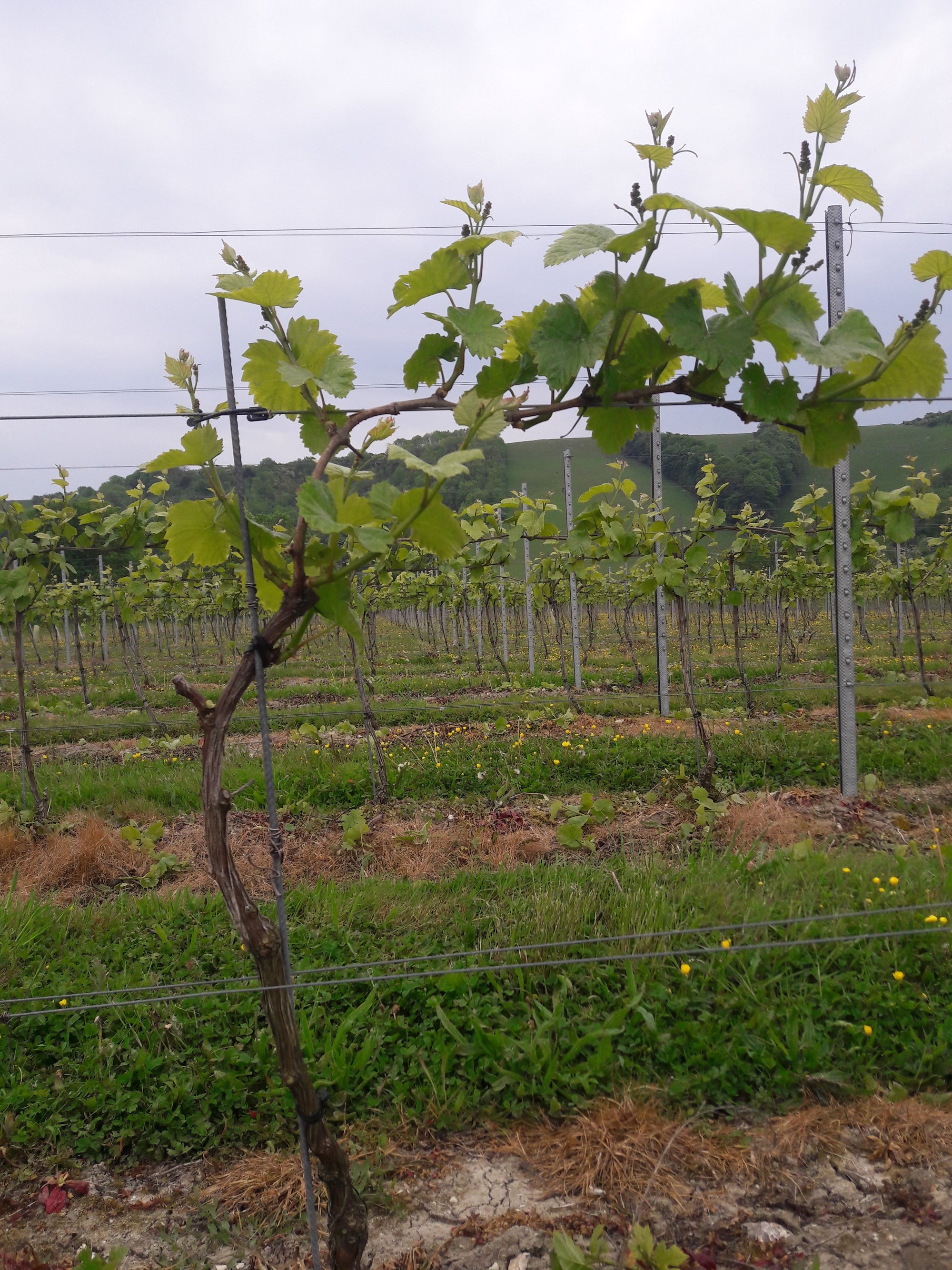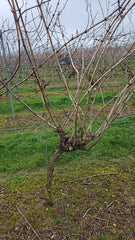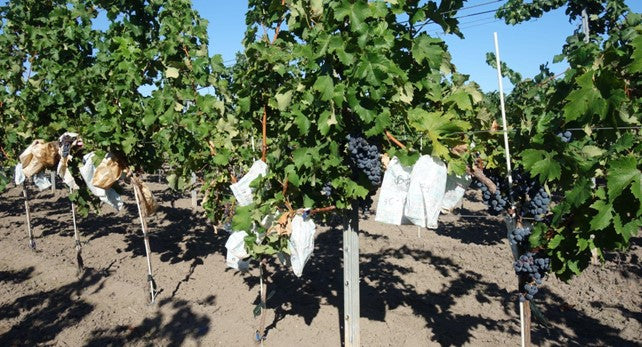

The Importance of Shoot Selection in UK Vineyards
As the grapevines begin to grow it is important to ensure the vines’ energy is channelled where you want it. Winter pruning dictates the shape of the vine for the coming season and the next, through the selection and positioning of canes, spurs and the number of buds purposely left. Bud rubbing and shoot selection is about ensuring the decisions made during winter pruning have the desired outcomes.
In a mature vineyard, the goals of bud rubbing and shoot selection are to maintain vine balance, optimise fruit quality and quantity, and manage the overall vine canopy. The process involves assessing the state of the vine, its potential vigour for the coming season, commercial objectives and seeking to ensure a balance between vegetative growth and fruit production.
Bud rubbing
As the vines emerge from dormancy unwanted new shoots need to be removed from the trunks. Early season growth is fueled by grapevine reserves accumulated during the previous seasons. Generally speaking, approximately one third of those reserves come from the canes/trunk, while two thirds are supplied by the roots. Removing unwanted growth ensures these finite resources are allocated to the remaining buds, promoting healthier growth of the intended shoots. The sooner it is done the better, although in some cases there will be shoots emerging from the trunk that must be removed later in the growing season too. It is also easier and less time-consuming to remove emerging buds compared with more established shoots.
The two most common approaches to bud rubbing are by hand and by tractor-mounted equipment. By hand tends to represent the most thorough approach, removing all unwanted growth. Tractor-mounted equipment tends to be faster and costs less. Some pieces of equipment that offer mechanical bud rubbing can simultaneously strim certain undervine weeds, especially younger, shorter ones, representing further cost and time efficiencies, although they tend to struggle with thicker, longer grasses and robust weeds.

Shoot selection and crown clearing
This is also about vine balance. While assessing each individual vine’s vigour and architecture, selected shoots are removed to ensure a balanced, evenly spaced canopy. Optimum shoot spacing helps promote aeration and sunlight interception, decreases shading and humidity, and prevents disease.
Positioning is more important than the individual shoot’s strength. A stronger shoot does not necessarily produce a larger yield. It is important when crown clearing and shoot selecting that thought is given to the shape of the vine and how the vine will be pruned the following year, including next year’s intended canes and spurs. When shoot selection and crown clearing is skipped, it can have multiple consequences. It can frequently lead to dense, crowded canopies around the crown area of the vine, creating ideal conditions for disease and shading what will be the following year’s buds leading to lower fruitfulness. It can lead to uneven growth of the vine and underutilised space along the trellis - certainly not creating an efficient canopy and maximising sunlight interception. And while opting against shoot selection may represent less cost this year, the extra time (and therefore cost) spent pruning vines that have not been crown cleared the following season can easily surpass this (representing approximately an additional 20-30% time per vine).
VineWorks has been establishing and supporting UK vineyards since 2006. With over 4.5 million vines planted, 300 vineyards established and thousands of tonnes of grapes hand-harvested, our expertise comes from experience.
Published in Fruit & Vine Magazine - April 2024
Photo credit: VineWorks, 2019
Small photo: Vine that has not been crown cleared.


